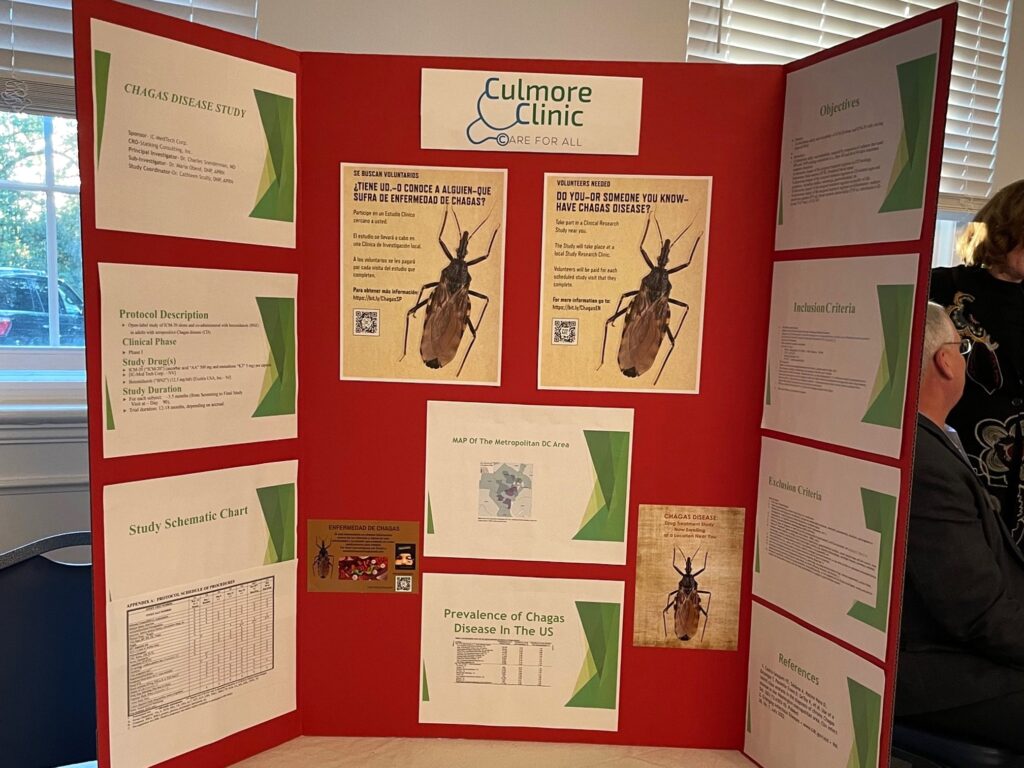Culmore Clinic is participating in a clinical trial on Chagas disease

The Culmore Clinic is participating in a clinical trial for a new treatment for Chagas disease.
The Culmore Clinic provides low-cost healthcare to uninsured adults in Bailey’s Crossroads and Seven Corners. It was selected for a phase 1 trial because it serves many patients who immigrated from poor, rural areas in Latin America where the disease is prevalent.
Chagas disease is caused by the parasite Trypanosoma cruzi (aka T Cruzi). It is transmitted to people and animals by insect vectors.
Most people who have Chagas don’t know they’re infected, says Maria Obeid, a nurse practitioner and clinical director of the Culmore Clinic, who will serve as sub-investigator of the Chagas trial. The clinic’s medical director, Dr. Charles Sneiderman, is the principal investigator.
Obeid says most people infected with the parasite develop flu-like symptoms and then feel better. The parasite can then embed in tissues and affect the heart. Late-stage Chagas disease can cause an enlarged heart or heart failure. It cannot be passed from one human to another, except from a blood transfusion or organ transplant.
There are no currently available treatments for adults with Chagas disease, although there are treatments for children ages 2-12.
The Culmore Clinic has identified five patients for the Chagas study and needs a total of 14. Participants do not need to be Culmore Clinic patients. Anyone who would like to get a free screening or refer someone else should contact Maria Obeid at 571-380-4166.
The phase 1 trial will last four months. Participants will have weekly screenings, blood tests, physical exams, and electrocardiogram monitoring. If they qualify, they will be enrolled in phase 2, where they will be given an experimental drug called ICM20 and subjected to more blood tests and monitoring.
“We’re pleased to take part in this study not only because it’s important to find treatment and learn more about the disease,” Obeid says, “but because people of color, older individuals, and people below the poverty line remain underrepresented in clinical trials in general. We’re excited to help correct for this gap.”


Great that trials are becoming more diverse. Hope the experimental treatment in Oase 2 is effective.